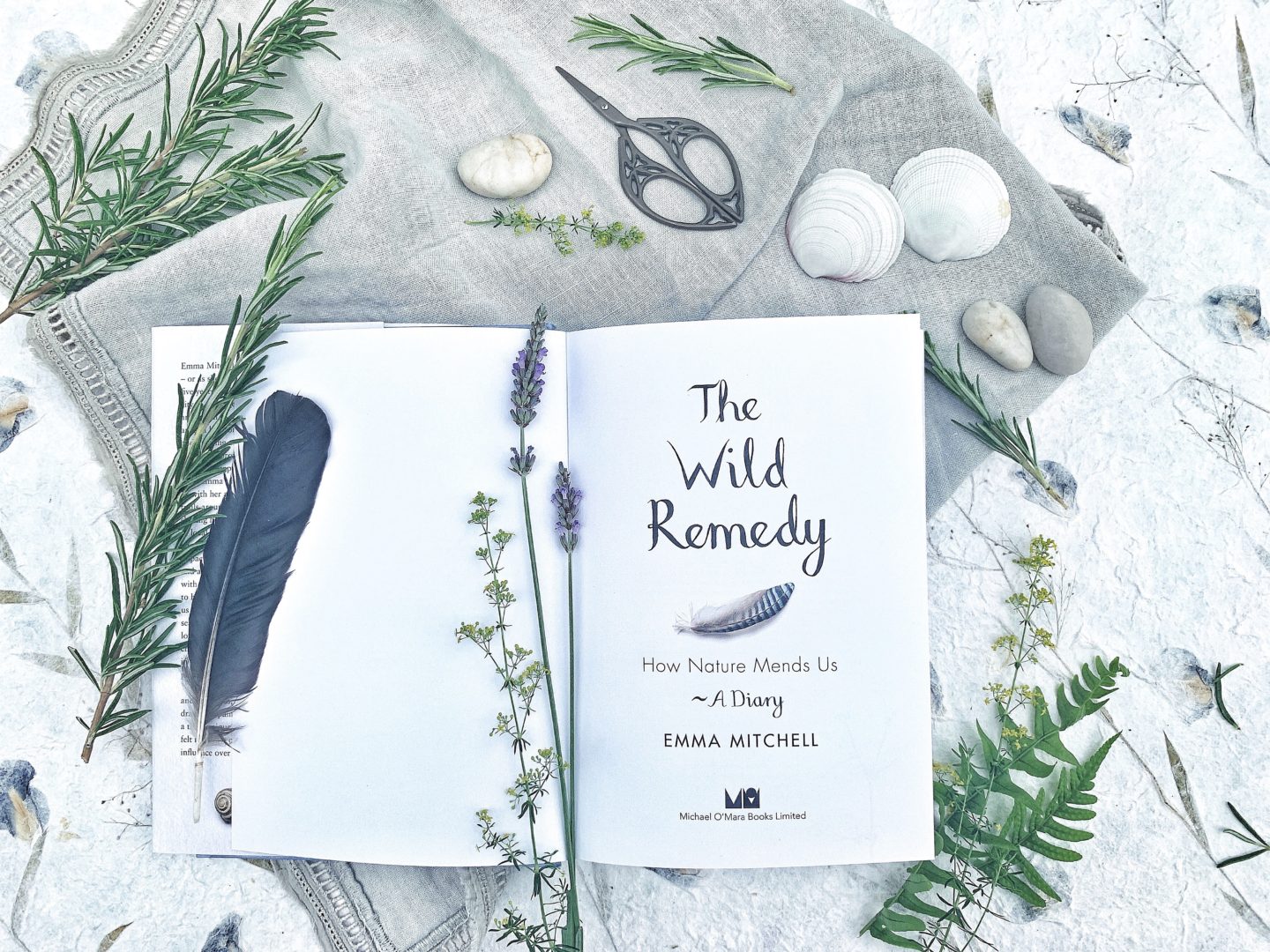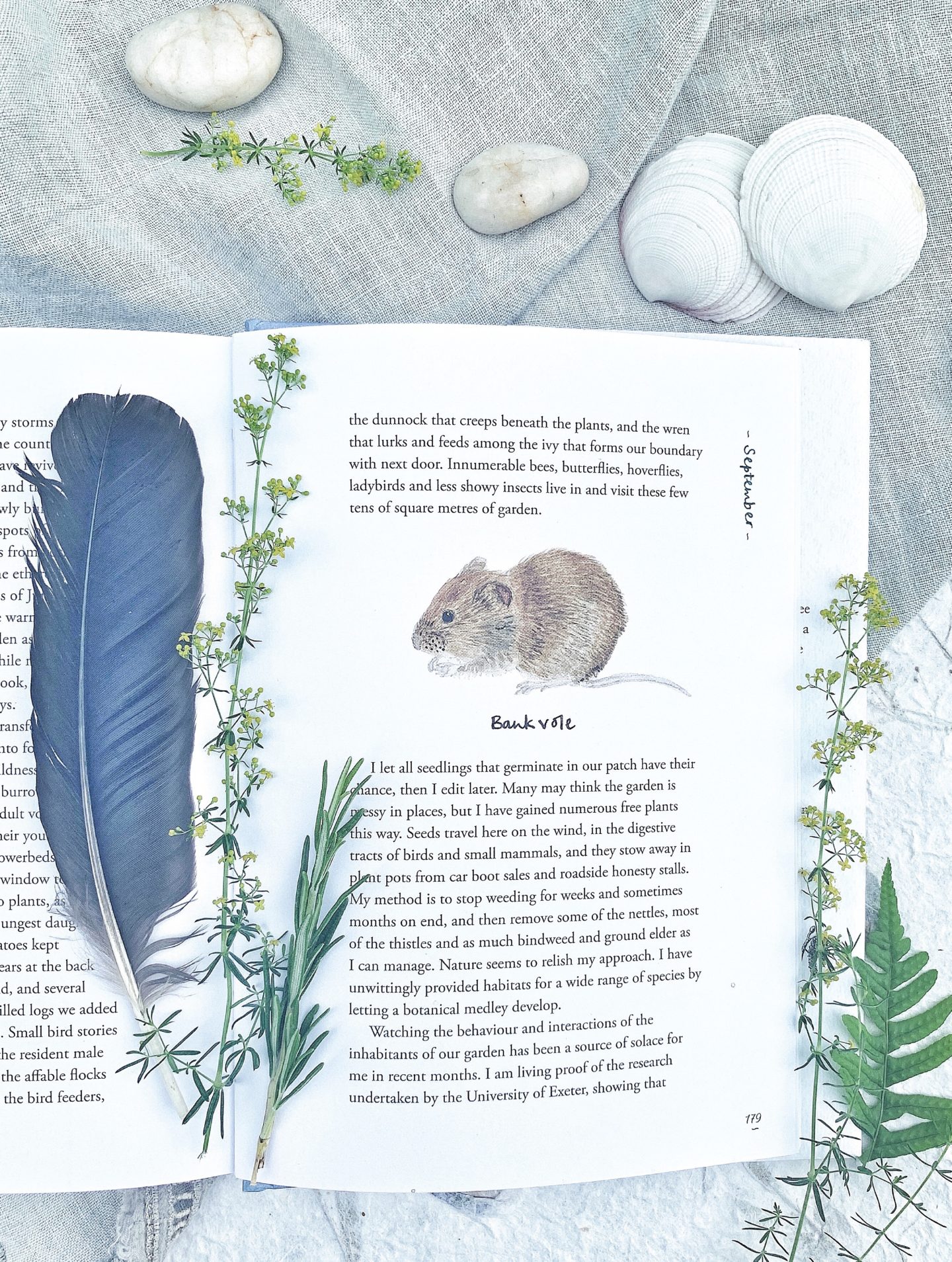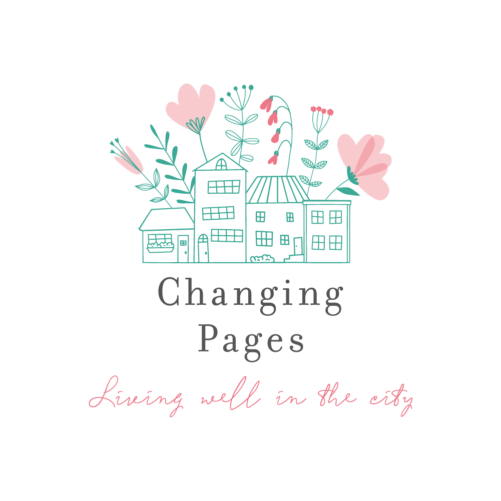
Emma Mitchell
Emma Mitchell is a naturalist, she has a degree in zoology, she writes for the Guardian newspaper, the BBC Countryfile magazine and other publications and has featured on Radio 4. She has also lived with depression for 25 years. In her beautiful book ‘The Wild Remedy – How Nature Mends Us’, she has written an honest and open diary of her daily struggles and the very positive effect that walking and being in the countryside has had on her mental health.
I find myself increasingly interested in the importance nature and the natural world plays in maintaining good mental health. I know personally, being able to get outside most days is important to me. I love to run and cycle and walk and feel fresh air and see the sky. In the spring when new life is all around, when trees begin to bud, flowers emerge and nature is waking up after its long winters sleep I feel invigorated.
In summer I Iike nothing more than opening the back door the moment I am down stairs and stepping into the garden with a cup of tea. A little bit of dead heading or a sniff of my sweet peas or a hand run across the stems of rosemary feels like a positive start to any day. Just the scent of honeysuckle as I pass by on my bike or the aroma of roses from someone else’s garden is enough to lift any low or down cast spirit.
Like many I suspect, as I have got older, I find myself taking far more interest in gardens and wildlife. Spending time wandering through a beautiful garden or strolling through a park or along a river on a Saturday afternoon is immeasurably more appealing than strolling through a shopping centre (something my teenage self would never have imagined she would say!)
The Wild Remedy
The Wild Remedy begins in October and finishes in September. Chapter by chapter and month by month, we are taken with Emma through the seasons and cycles of nature as she honestly recounts the highs and low of her year.
Emma is a scientist so this book is more than feelings and emotions and personal experience, it is based on research and scientific evidence. This serves to make it only more fascinating and credible. She regularly refers to the science to back up her own experiences. For example, research has shown that our biochemistry responds to the presence of trees and plants. Within 15 minutes, the stress hormone (cortisol) levels drop, pulse rate slows, and we feel calmer. Scottish GPs have recognised the seriousness of this and have begun to ‘prescribe’ time spent in wild landscapes alongside antidepressants and counselling for those diagnosed with anxiety and low mood.
Emma gives many examples of her own experience of being in nature or simply seeing it around her and the positive effect this has for her. She describes a time in March when she was at her lowest ebb, suicidal and desperate.
“I drive to the A11. There are bridges there. My thoughts are loud and incessant…….Which bridge would be best? Most effective? Highest? The cacophony is terrifying. It feels physical as thought my mind is actually bursting from my skull. The urge to end myself roars my mind. As I drive I catch sight of the scrub saplings growing in the central reservation. The glimpses of green and the hum and rhythm of the car quieten the cannibalistic clamour. A part of my brain that has been silent for days awakens: the part which seeks out nature as a remedy. ‘You are not well.’ it says: ‘seek help’. The voice is very very small but I listen. I continue along the A11 for some time allowing the car to soothe my mind a little more. I pass more trees. Trees: green, relief. My mind is not still but the terrible churning and lurching towards that point of no return has ceased”
I found myself incredibly moved by this passage. Although I like to credit myself with being reasonably aware of my natural surroundings and in tune with them, I have been more aware of the power they have since reading this book.
Walking
Emma talks of the walks she takes with her dog Annie and with her children, and the powerful effect a walk has on our internal make up and biochemistry. Inhaling the oils released by plants and trees lifts mood, alters stress hormone levels and can almost instantly lead to a more relaxed and uplifted demeanour. Getting out side for as little as 10 minutes a day can have seriously positive effects on our mood and wellbeing.
Foraging
She describes in just the right amount of depth her experiences of foraging. Picking up twigs or stones or shells or searching for life in a rock pool or a pond is an immersive activity which takes you from daily stresses of life and transports you temporarily to another world. I love the idea of foraging and collecting nature. It takes me back to the days of nature tables in school and taking in pine cones or enormous leaves to display on it. Today I have pebbles and shells I have picked up on beaches and shore lines and do love the memories of searching for them and choosing the ones to shove in my pocket and take home.
More Than Just Words
As a book, The Wild Remedy looks gorgeous. The cover reflects the pieces of nature Emma collects and holds dear. Little snatches of plants and the living world she has collected which have boosted her mood and lifted her ailing sprits when nothing else could. The cover is a taster of whats inside. Photographs, line drawings, water colours and images of Emma’s collections of flowers and stones and feathers. All are carefully labelled with her own writing and calligraphy.

This book is calming and gentle and educational and beautiful. I can imagine picking this book up again and again and flicking through the pictures. Coming across the glorious photograph of bluebells in the sunlight in the depths of January would be instantly lifting.
In a caption for one of Emma’s instagram images she said about her book,
“The illustrations and photographs are there not just to show you what I saw but also in the hope that if you are having a stressful day, a difficult time, you can curl up with a copy of The Wild Remedy and simply look at the pictures.”
This is a beautiful premise for a book which I have taken so much from both intellectually and emotionally. This is a wonderful book to read cover to cover or just dip into from time to time when the mood takes you or you are in need of some gentle nature therapy.


I, too, have always loved being outside Angie, and especially walking. Early Years are meant to have access to the outside area at all times and I can see why! Take a disruptive child outside and they almost always calm down xxx
Author
Yes and you live in such a lovely place to walk. I can definitely see that being outside would calm a child xx
I bought this a while ago after following Emma on Twitter (via Jackie Morris I think) but I haven’t read it yet. I guess October would be a good time to start 🙂
Author
I remember seeing this book at your house when we visited Vicky. I enjoy it very much and will certainly dip in and out of it. October will be the perfect time to start it!
Such a thoughtful review and I love your description of a summer morning’s tonic. I too find myself much more inclined to take a walk in the woods than a turn around the shops these days.
Author
Thank you so much Rebecca. Its interesting how we change isn’t it. Each day a potential new discovery!
What a lovely review, thankyou so much Angie
Author
You are so welcome Emma. I adored your book for so many reasons